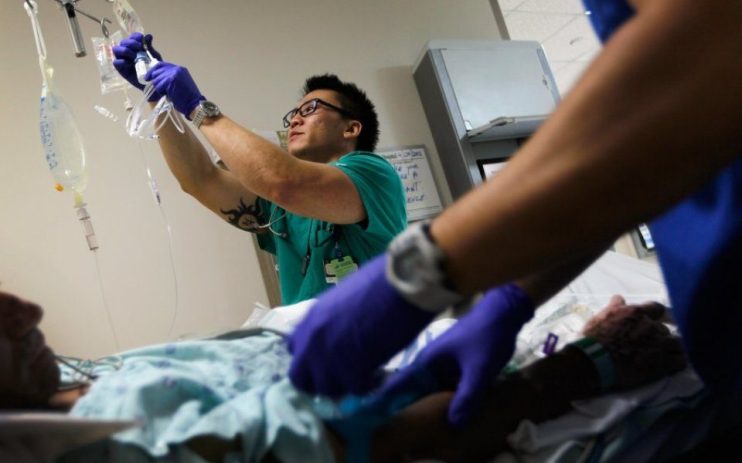Explainer: An overhaul of cancer targets causes split between doctors

Today NHS England announced proposals for new cancer targets following a consultation that began last year. The proposals include significant changes, like abolishing around two-thirds of the targets and changing others in a major overhaul of the cancer diagnostics and treatment system.
The NHS says the new system, with fewer targets, will be easier for patients to understand. The main targets will come down to three.
Patients who have suspected cancer – which means they show potential symptoms – will get a diagnosis or an all-clear within 28 days. Historically, the targets here have always specified the patient needed to see a specialist.
Secondly, patients with a diagnosis will start treatment within nine weeks from the date of referral.
And lastly, the timeline to receive the first treatment for cancer patients should be within a month of a decision to treat the diagnosis.
Practitioners in the field disagreed on whether the changes made much of a positive difference, given that cancer targets have been routinely missed for a while.
Speaking on Radio 4 this morning, Dr Tom Roques, vice president of clinical oncology at the Royal College of Radiologists, welcomed the targets. He said they focus on the two important things for cancer patients: getting a diagnosis quickly and starting treatment quickly.
He said the target for seeing a specialist didn’t make sense anymore, given the use of technologies like teledermatology to look at skin symptoms or endoscopy tests to detect the presence – or lack of – bowel cancer.
“The artificial focus on ‘you need to see a doctor within 14 days’ might not be the best way”, he said.
He did acknowledge, however, that targets “achieve nothing on their own”, calling for more investment in the workforce.
Professor Pat Price, co-founder of the #CatchupWithCancer campaign, was much more cynical about the new targets. She pointed to the lack of evidence that these changes will affect performance, saying “failure is failure however you measure it”.
“Just changing targets could make a small change, we’ll see, but we don’t need small changes, we’re in the biggest cancer crisis we have”, she said.
Professor Price pointed to one of the most contested aspects of the changes, the one on breast cancer. The current target is for 93 per cent of women to be seen in a one-stop clinic in 2 weeks. The actual figure achieved by the NHS currently stands at around 74 per cent, and the new target will be for 75 per cent of women to be seen in 28 days.
The changes have political weight as well, as the results of the consultation are subjected to final approval by ministers.
Labour was quick to accuse the government of moving the goalposts after repeated failures at doing something to help the NHS reach its targets. Keir Starmer said that the last Labour government “hit those targets”. “We didn’t walk away when the going got tough”, he said.
Health secretary Steve Barclay insisted ministers weren’t behind the drive to change the targets, saying it was driven instead by clinical leaders within the field.